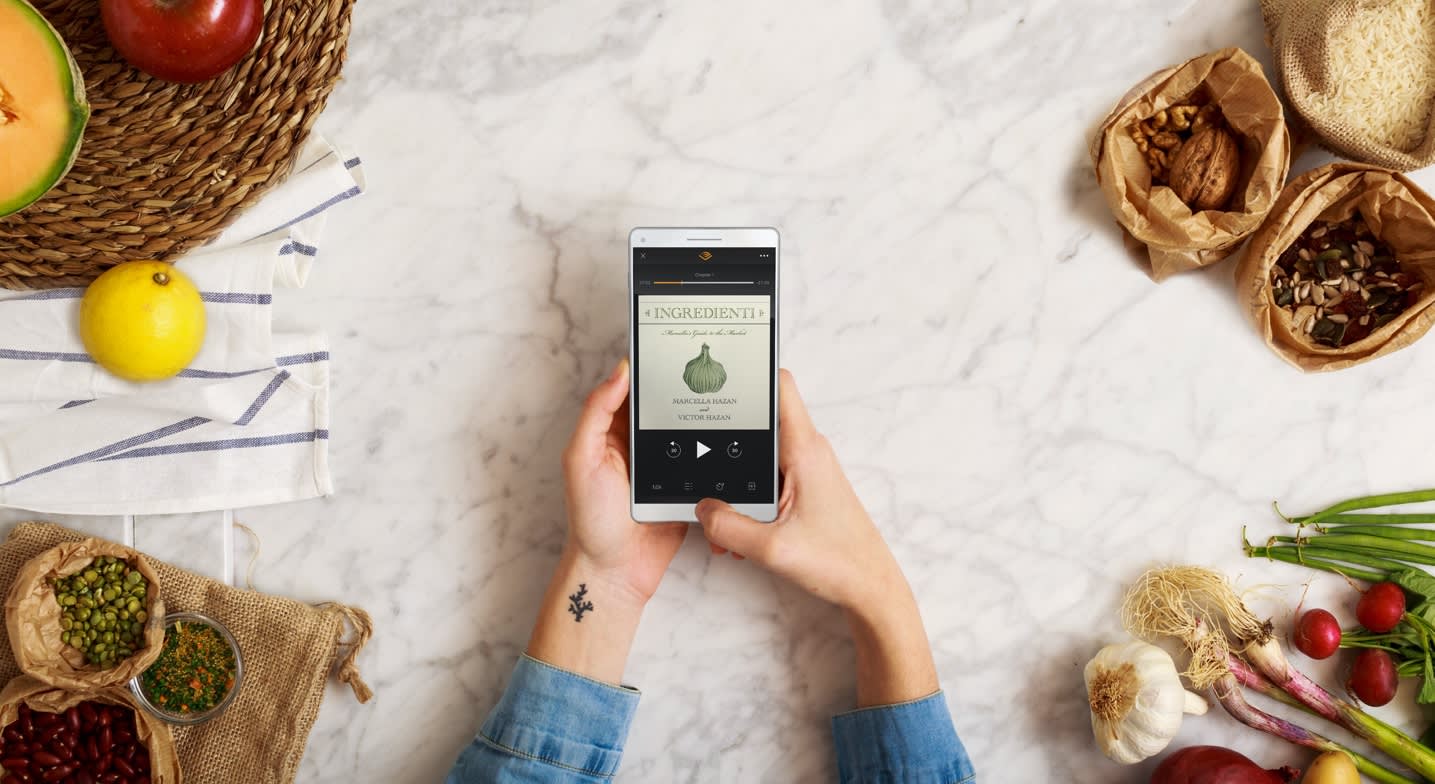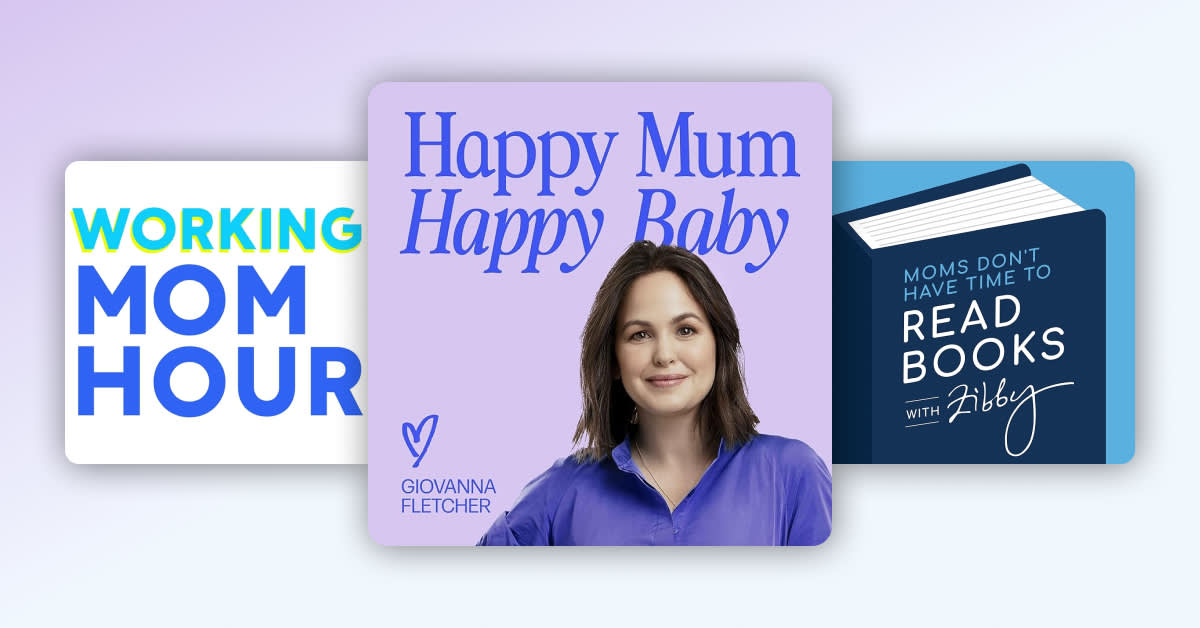You have not lived until you’ve heard Meryl Streep narrate how to make the perfect four-minute egg.
Let me make one thing clear: I do not cook food.
Gulp, inhale, savor, exalt? Sure. But cooking — oh how the word “cook” hits my ears like a four-lettered insult! — has always remained a talent just out of my reach. I merely prepare food. We’re talking basic, embarrassing, canned-spaghetti-sauce stuff. Sorry, Grandma. All of those (to use the term loosely) “recipes” for Two-Ingredient Cookies and Super Quick Slow-Cooker Dinners are my shameful thirtysomething secret.
Still, you’re supposed to confront that which makes you feel most insecure, right? Instead of simmering in self-loathing about being cooking dumb, I decided to sneak cooking inspiration into my life with the help of chefs, critics, and experts who know their way around a wok. While it would be impossible to read their books while walking through the farmer’s market or squeezing loaves of sourdough in the supermarket — or even fit a cracked-open cookbook on the counter in my tiny kitchen — I thought that listening to stories and encouragement in their own voices might help calm my anxieties and perhaps coax out my inner Julia Child. I was right.
I start with 32 Yolks: From My Mother’s Table to Working the Line by Eric Ripert. (Speak French to me, Chef.) Ripert is the man behind Le Bernardin, long hailed as one of the best restaurants in the world, and I know from chapter one (titled “First, Dessert: Chocolate Mousse”) that we will be fast friends — albeit with one sugary-sweet hitch: I must first have that mousse.
As he details life growing up in France as a precocious kid gourmand, it’s not hard to see how knowing a chef’s life story, how he literally grew to love the food that later informs his career, can make you appreciate that chef even more. I wonder, then, how much our relationship with food is frozen in place during childhood. If Ripert hadn’t spent his pre-pubescent years eating escargot at Michelin-starred restaurants, or turning to food as a salve for his unhappy childhood after his parent’s divorce and father’s death when he was 11, where would he be now?
I ponder this as he shares one of the highlights of his youth: le goûter, the French midday snack time apparently beloved by children. He makes them count; baguette and Nutella was a favorite. Incorporating small yet delicious moments throughout the day is a genius idea. Is my grocery store open 24 hours? My appetite is.
No one wants to get schooled by someone who thinks their schnitzel don’t stink.
The next course is The Kitchen Counter Cooking School by Kathleen Flinn. Now that I’ve set the gastronomic tone for myself, I’m ready to become fearless. The author, a Le Cordon Bleu graduate, emphasizes that her tips are practical and simple: “As long as an approach yields good, nourishing food, it isn’t wrong,” she says. Amen, Kathleen. As she rifles through the kitchens of the adopted students to whom she’s determined to teach proper food techniques, I feel less embarrassed about being a tenderfoot — and, fine, slightly smug that I don’t have Stouffer’s lasagna in my freezer. (Mine’s from Trader Joe’s.)
A teacher’s self-importance can be the quickest enthusiasm-killer for a wide-eyed student. (Remember your most-loathed college professor? Chances are he was a smug tool.) That’s why the food world can feel impervious to outsiders. No one wants to get schooled by someone who thinks their schnitzel don’t stink. Yet despite Flinn’s obvious bona fides, she’s understanding and accepting of life circumstances that don’t allow everyone to whip up Ripert-level meals. We’ve entered a judgment-free zone. One in which I now have a recipe for no-knead artisan bread!
From there, it’s time for Heartburn by Nora Ephron. Now, eggs and I are friends. I can make eggs, I’m not that hopeless. But let me just say one thing. You have not lived until you’ve heard Meryl Streep narrate how to make the perfect four-minute egg. Listening to our grande dame spend 30 seconds explaining, in Nora Ephron’s 1983 memoir-as-novel, that the perfect four-minute egg actually only takes three minutes, is illuminating; the context in which we learn about food matters. Like in her other books, Ephron casually weaves recipes throughout the text, as if her life and food are as intertwined as a single spaghetti strand and the tines of a fork.
The story about a husband’s affair and subsequent divorce (in real life, Ephron was married to famed journalist Carl Bernstein) presents food as life-giving, not a fetish to be merely Instagrammed. The recipes follow suit. What’s more comforting than knowing you are making Lillian Hellman’s pot roast? Late one night, with Meryl in my ear, I boiled water, patiently waited exactly three minutes, and then ate my egg. Nora was right. It was perfect.
It’s not that I wish to be a critic. But seeing her standards makes me want to elevate my own.
I finish up with Garlic and Sapphires by Ruth Reichl. There comes a point in every audiobook binger’s life when she’s ready to trade in her IKEA pots and pans for a set of All-Clad. Metaphorically, of course. Most of what I’d learned so far was helpful in understanding why cooking feels intimidating. But as I listened to the words of Reichl, the beloved former food critic and Gourmet editor-in-chief whose descriptions of foods that have disappointed her (“squishy brown square of meat”) could make a grown chef weep, I was ready to become intimidating.
Reichl teaches me about setting high expectations, for everything from your amuse-bouche to your digestif. It’s not that I wish to be a critic. (Although the disguises she wore while reviewing the best restaurants in the world made me want to ransack my closet for wide-brimmed hats.) But seeing her standards makes me want to elevate my own. Her obvious love for the entire culinary world is addictive, and enthusiasm, much like her recipe for New York-style cheesecake, is best when shared. Although Reichl is an exacting critic, listening to her book makes me feel like we’re on the same team; and since she includes her favorite recipes, we can cook on the same team, too. Although I’m far from fluent, I’m finally beginning to understand the language of food.
Here’s a complete line-up of inspiring people to take with you grocery shopping and cooking, whether you want support following a healthy diet, or permission to pursue a delicious Epicureanism:
In an industry where celebrity chefs are known as much for their salty talk and quick tempers as their food, Eric Ripert stands out....
After graduating from Le Cordon Bleu in Paris, writer Kathleen Flinn returned with no idea what to do next, until one day at a supermarket she watched a woman loading her cart with ultraprocessed foods....
After I listened to Heartburn – one of my favorite audiobooks of all time – Nora Ephron became my patron saint of what to do when life serves you up a steaming pile. At seven months pregnant with their second child, Ephron caught her husband cheating on her with a British Baroness. Not one to take a hit sitting down, she got her revenge by writing a thinly veiled comedy (a comedy!) about the whole affair before the ink had even dried on the divorce papers. Heartburn is, indeed, about a pregnant woman who catches her husband cheating on her, and it’s filled with all the sharply observant wit and heart that made Ephron one of the most beloved filmmakers of all time.
With Heartburn, Nora Ephron wrote the narrative of her own story – because of it, the world will always remember her ex as a cheating rat. She also got the last laugh while running all the way to the bank. (The best revenge is your paper.) But, above all, Heartburn launched Ephron’s epic screenwriting and producing career. Three years after she published the book, she wrote the screenplay for the Hollywood film starring Meryl Streep and Jack Nicholson. It was one of her first screenplays, and gave her the momentum to write and produce her next film, which was the breakout hit When Harry Met Sally. How badass is that?! Heartburn taught me about the healing power of being able to laugh through tragedy, and that the greatest power of all lies in writing your own story.
It’s not just chefs on my list. Renowned restaurant critic and Gourmet editor-in-chief Ruth Reichl has a memoir from the other side of the table. She shares hilarious tales of developing alter egos (she has quite a wig collection), which she used to review restaurants incognito.
With the help of her grand-nephew, Alex Prud’Homme, Julia Child tells the story of her formative years as an American chef in France. Expertly narrated by Kimberly Farr, this audiobook is a fascinating account of Child’s path to culinary fame. The legendary chef gives listeners an inside look at the birth of her passion for cooking and the many obstacles and rejections she faced before she became a household name. (Oh, and the vibrant descriptions of Paris in the 1950s might just tempt listeners to impulsively book a flight to France.)
From the best-selling author of Why We Get Fat, a groundbreaking, eye-opening exposé that makes the convincing case that sugar is the tobacco of the new millennium....
The Paleo diet is one of the fastest-growing ways of losing weight which has been proven to work for all types of people....
Ingredienti offers succinct and compelling advice on how to choose vegetables, pasta, olive oil, Parmigiano Reggiano, prosciutto, and all of the key elements of Marcella's classic meals....
The Third Plate is chef Dan Barber’s extraordinary vision for a new future of American eating....













